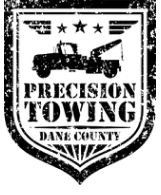It’s often said that you should always have a trusted doctor, plumber, and electrician ready for emergencies. The same goes for your auto shop and mechanic. You don’t want to be searching for one when a crisis hits.
Misleading marketing claims and technicians pushing unnecessary services can lead to wasted money and unresolved issues. In the worst-case scenario, you might end up with more harm than good done to your vehicle—and a hefty bill to show for it.
Verify Licenses and Credentials
Qualified technicians at your local automotive repair shop in Madison, WI, should hold valid licenses from reputable organizations such as ASE, AAA, or specific manufacturer partnerships, indicating specialized training on your make or model. Shops that only mention vague “certifications” may not employ genuinely certified staff, so it’s important to verify their credentials. Additionally, check for BBB accreditation and Angie’s List reviews to ensure you’re choosing a reputable service provider.
Compare Pricing and Estimates
Beware of quotes that are either absurdly high or low, and estimates that provide only vague descriptions like “diagnose engine issue” without specifying parts and labor charges. Quality repair shops offer clearly itemized estimates after thorough diagnostics, including projected labor hours and component prices from reputable suppliers. To avoid inflated charges, ask around and compare rates for common repairs.
Evaluate Equipment and Facility
Peeling paint and outdated tools can suggest that a shop’s margins are too tight to reinvest in the latest diagnostic and repair equipment. Look for shops with modern lifts, advanced scan tools, and up-to-date parts procurement systems, which ensure that technicians have access to current specifications and specialized repair data for today’s complex vehicles. Disorganization and grime can also be signs of questionable care or a lack of pride in the work.
Understand the Warranty
Savvy repair shops stand firmly behind their workmanship by offering labor guarantees of 6 months or longer. Any components installed should also come with a parts warranty to protect against early failures or defects. Be cautious of short warranties like 30, 60, or 90 days—repairs done correctly should ensure reliable operation over the long term.
- Inquire About Warranty Transferability: Some shops offer transferable warranties. So, if you sell your vehicle, then the warranty benefits can be passed on to the new owner.
- Clarify Coverage Limits: Does the warranty include parts and labor, or just one? Are there mileage or time restrictions?
- Check for Pro-Rated Warranty Options: Ask about pro-rated warranties, which decrease in value over time but provide longer coverage periods.
Check for Ongoing Support
An esteemed repair shop is one that educates owners about identified issues, recommended services, and best practices for future prevention. They should provide maintenance checklists specific to your make and model, review test drive impressions with you, explain repair priorities, and encourage questions. Building a good rapport with the service advisor is also important when selecting your repair advocate.
By thoroughly vetting credentials, community reputation, facility condition, and customer care using this checklist, you significantly improve your chances of finding a shop that delivers expert diagnosis and quality workmanship. Consider scheduling an introductory visit to assess their expertise before any problems arise.
